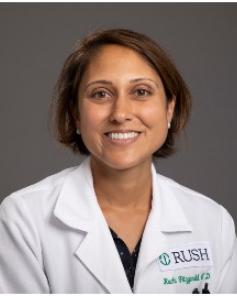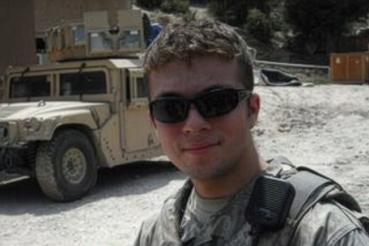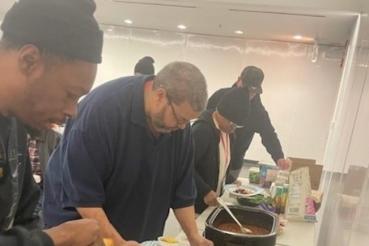International Overdose Awareness Day is an incredibly important day. Right now, fatal overdoses are rising rapidly, and it is imperative that as health care professionals we all take action to do what we can to address the dual epidemic with COVID-19 that is taking lives away here in Chicago.
Overdose is preventable. Naloxone is a medication that is an opioid antagonist — it can bind to opioid receptors and rapidly reverse opioid overdose. It is a life-saving medication when patients have access to it. Most commonly available as an injectable formulation or as an intranasal spray, it is easy to use and does not require medical expertise. Data showing unacceptable increases in overdose rates in 2019, and thus far in 2020, underscores that we need more access to naloxone, overdose prevention education and harm reduction resources and treatment, especially in the Black and Latinx population on the West and South Sides.
As a clinician, if you see a patient who has a history of a substance use disorder and/or has a history of a nonfatal overdose, don’t forget to prescribe naloxone. If you are prescribing opioids, make sure you are checking the morphine milligram equivalents, or MMEs and know when you need to co-prescribe naloxone, especially if your patient also takes a benzodiazepine. Talk to your patients and their families about overdose prevention education, and know what resources are available in the community for harm reduction supplies. We all have a role to play, just like we are all working to address COVID-19.
Passionate about addiction medicine
If you have met me, you know that I am incredibly passionate about addiction medicine for many reasons. So many of my patients during my family medicine training in Montana were affected by substance use disorders, predominantly alcohol use disorders and methamphetamine. I also had the opportunity to work in the city’s drug and alcohol treatment center, caring for adolescents to adults. As the opioid epidemic evolved, I knew that I needed to commit myself to re-entering graduate medical education and join the efforts to increase the workforce to care for patients affected by substance use disorders.
I am also a physician in long-term recovery, and have found joy in caring for patients who have been deeply stigmatized over and over by the health care system, society and even their family for having a disease that is a chronic medical illness. It disheartens me to think that there are still clinicians who believe that addiction is a character flaw or a moral failing. Through education, advocacy for our patients, and modeling non-stigmatizing language and compassion, I have hope that our patients will come to feel more comfortable accessing the health care system and the care they deserve. Treatment works. Judgment does not.
It’s the forward thinking that Rush has that allows me to take the skills from the fellowship, and use it on the West Side where we really need addiction medicine services. Community addiction medicine adds a different flavor to addiction medicine at Rush. I also believe that primary care has such an important role in our field, particularly for the medically underserved.
Here at Rush, as an addiction medicine doctor, I take care of patients in the inpatient setting as part of the Substance Use Intervention Team, or SUIT. This is a team-based consultation service that sees patients with unhealthy substance use and provides treatment for substance use disorders and coordinates with the primary team to care for the substance use disorder in context to the medical illnesses that brought the patient to the hospital. SUIT also links the patient to aftercare, either at Rush or in the patient’s community.
Expanding treatment options
Many addiction medicine doctors are very active in clinical or basic science research to advance the knowledge on the treatment of substance use disorders. I am also very involved in education, here at Rush and across the state. We work hard to expand how many physicians know how to use naloxone, are “X-waivered,” which means they are able to treat opioid use disorder, and also teach safe opioid-prescribing courses for the state of Illinois.
My involvement with federal, state and local advocacy efforts are all geared toward helping expand treatment options and expand access to medication, overdose prevention and harm reduction efforts. There is also a major legislative effort right now to substantially improve substance use disorder curriculum in medical education, and I work on those efforts with the American Society of Addiction Medicine. So many addiction medicine doctors do so much. I’ve been mentored by some of the best here at Rush and in the community.
International Overdose Awareness Day is an opportunity to reflect on the lives who have been lost to substance-related deaths and to take action to prevent future drug overdoses. There is a critical role for all health care professionals in this endeavor, especially as overdose rates are rising in numerous states across the country. Addiction is a chronic disease and stigmatizing patients with substance use disorder can cost them their lives. I believe it’s time to partner with patients and change policies so we can prevent addiction and end overdose.





